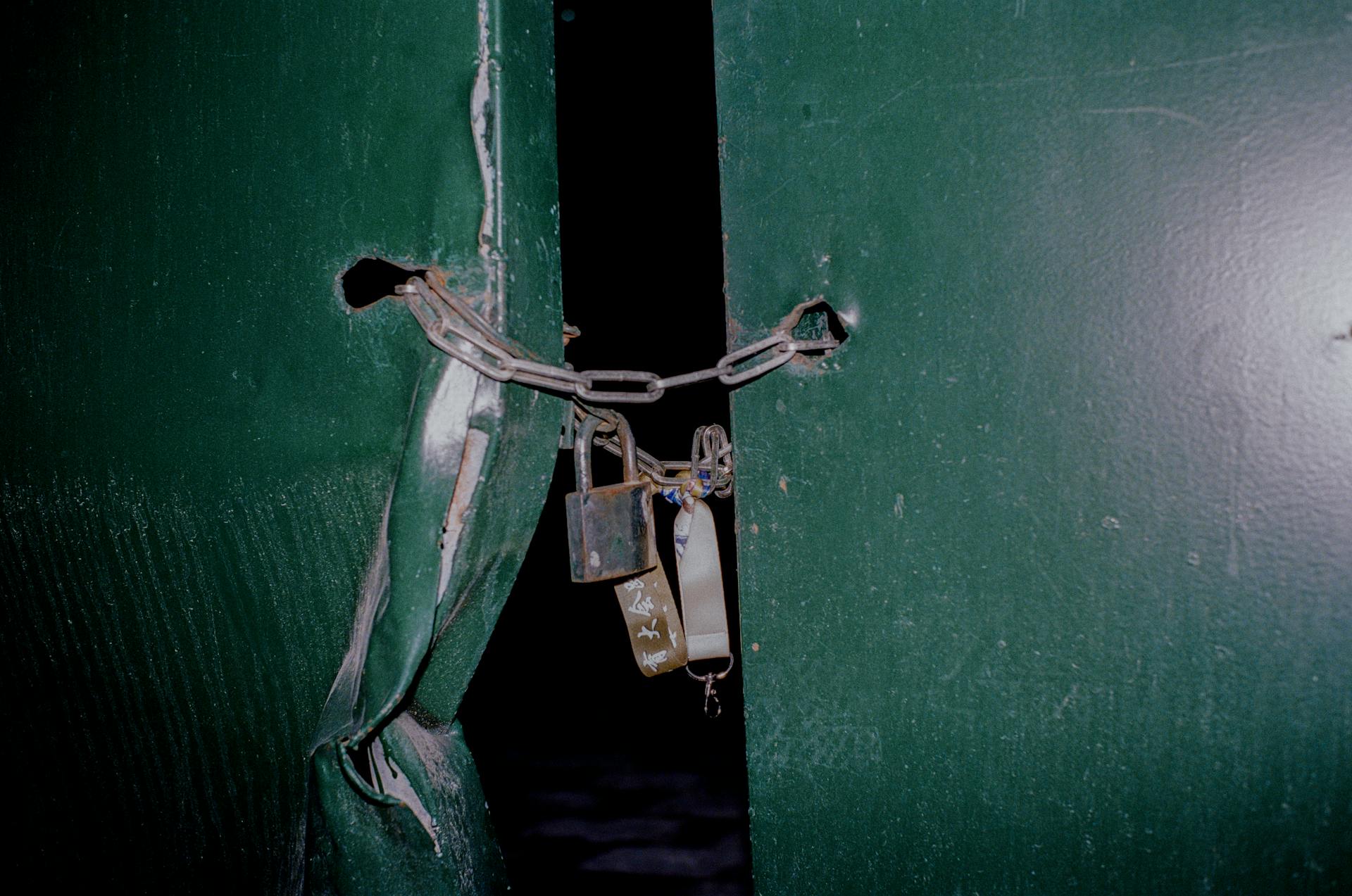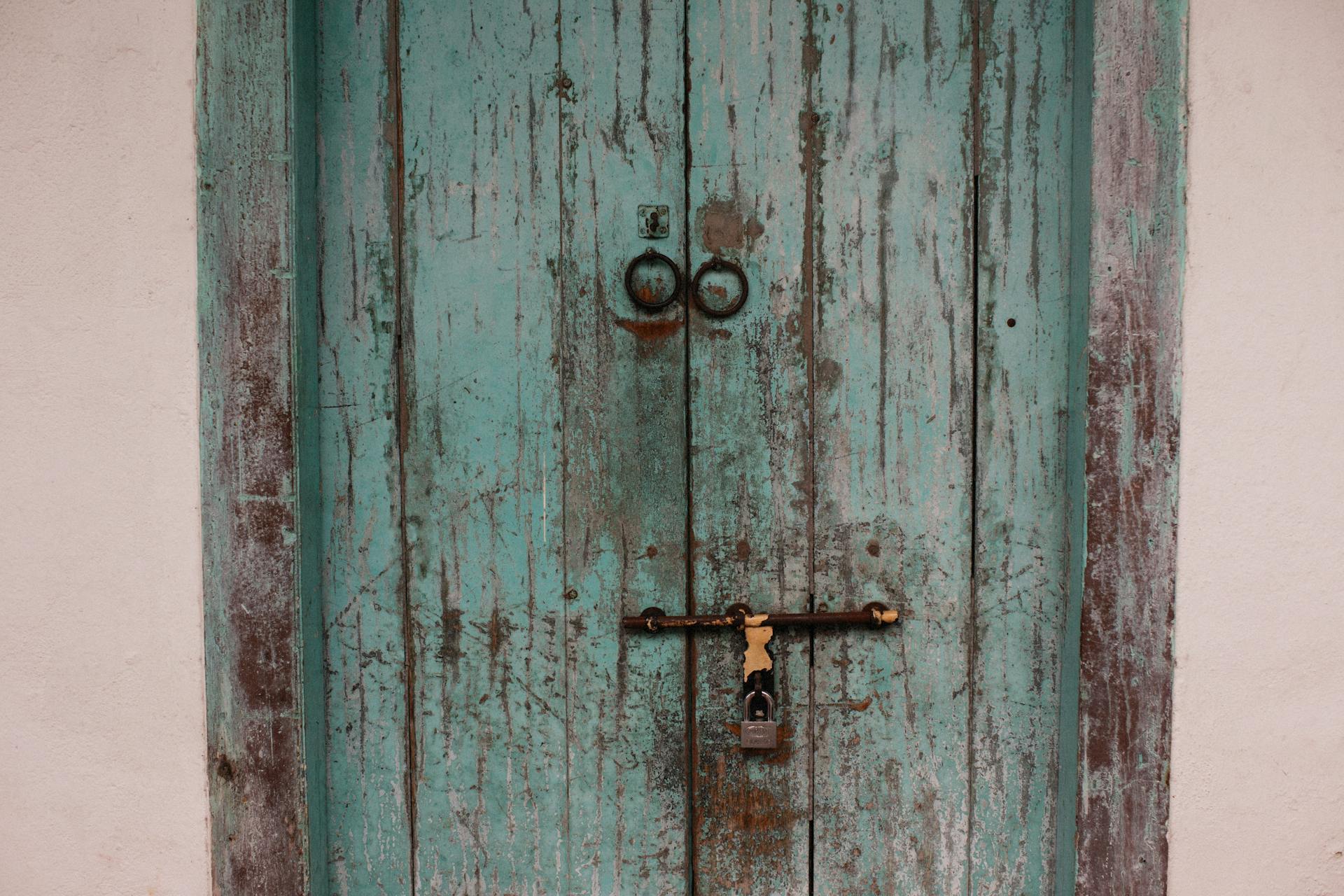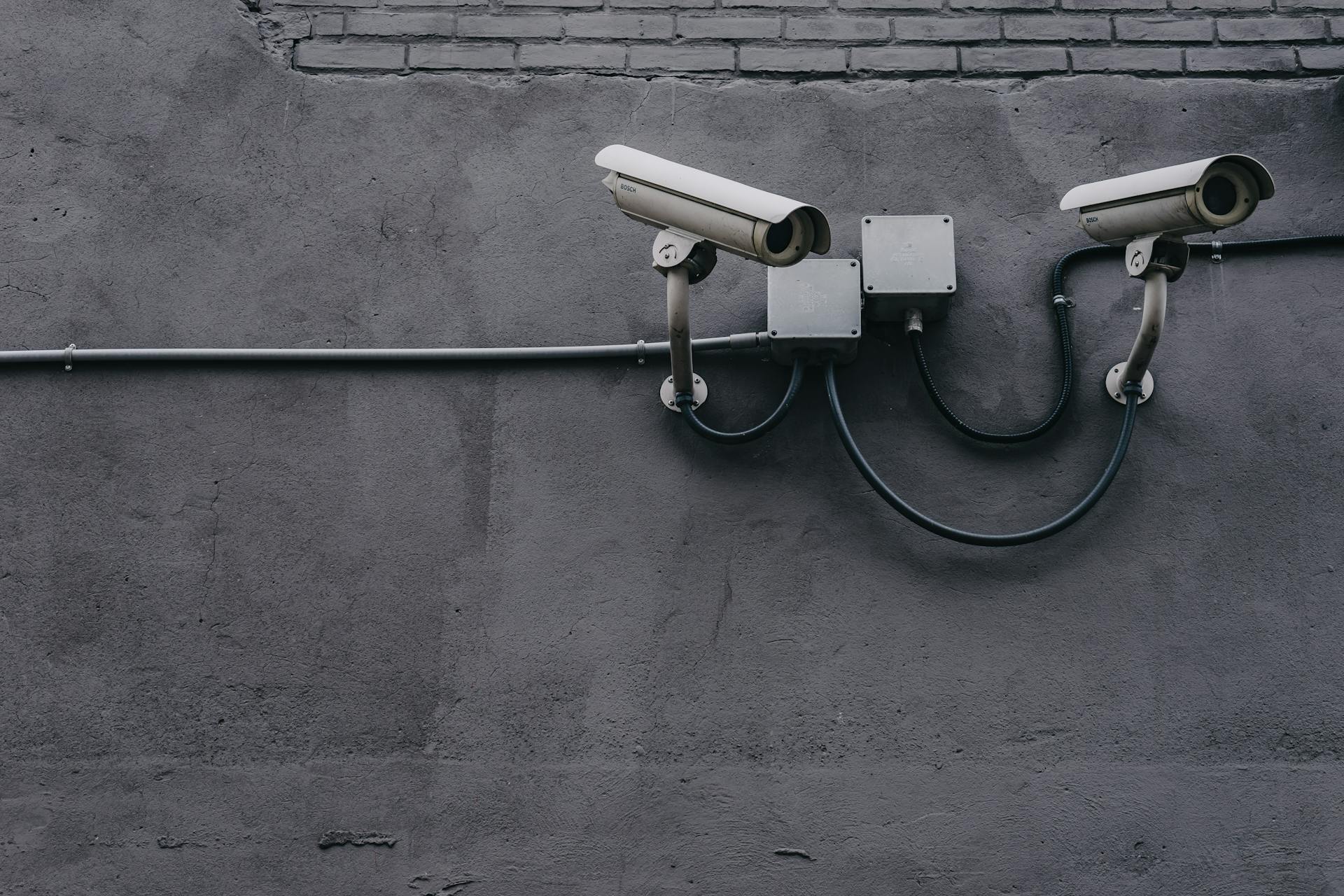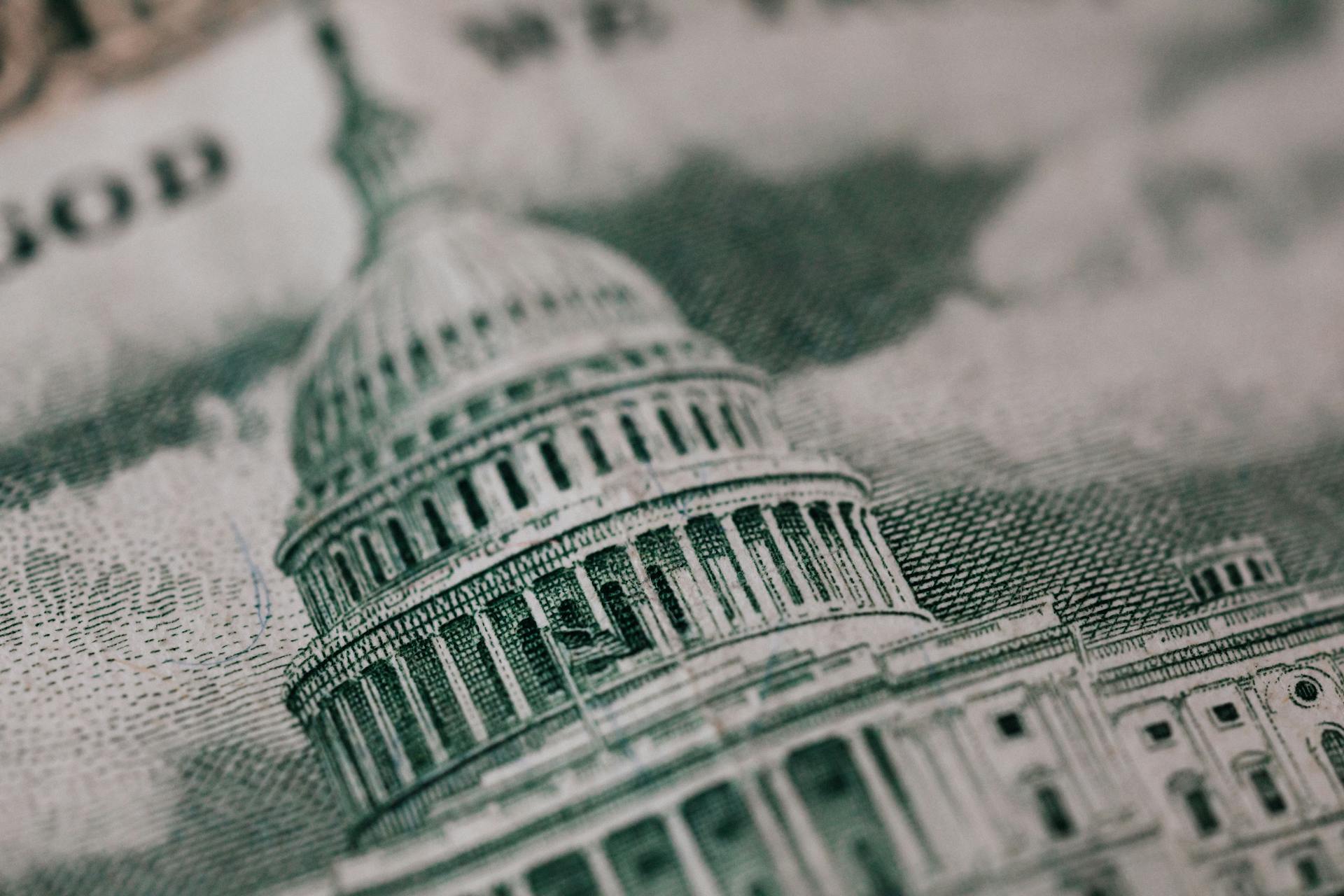
Building a strong credit history can be a daunting task, especially for those who are new to credit or have had financial setbacks. You can start by getting a secured credit card, which requires a security deposit to open and use.
A secured credit card is a type of credit card that's designed for people who are rebuilding their credit or have no credit history. It's a great way to start building credit from scratch.
To get approved for a secured credit card, you'll typically need to make a security deposit, which will become your credit limit. For example, if you deposit $500, your credit limit will be $500.
By using a secured credit card responsibly and paying your bill on time, you can start to build a positive credit history. This can help you qualify for better credit cards and loans in the future.
Consider reading: Will a Prepaid Credit Card Build Credit
What Is a Secured Card?
A secured card is a type of credit card that requires a security deposit before you can use it.
You'll need to put down a deposit that will serve as collateral for your credit line. This deposit can be as low as less than $50, but most cards require you to match your credit line with an equivalent deposit.
For example, if you want a $500 line of credit, you'll need to pay a $500 deposit. This deposit will be returned to you if you manage your credit line responsibly.
Secured cards are often used to build credit, and they can be a good option for people with poor credit or a limited credit history.
Check this out: Secured Credit Card Bad Credit with No Security Deposit
Choose the Right
To build credit with a secured card, you need to choose the right one. Look for a card that reports to all three major credit bureaus – Experian, Equifax, and TransUnion – to ensure on-time payments are reflected on your credit report.
A secured credit card with no annual fees, low interest rates, and the opportunity to upgrade to an unsecured card later is a good option. Some cards may have hidden fees, so be sure to research them before applying.
Consider the following questions when selecting a secured credit card: Are there any hidden fees? Does the card report to all three credit bureaus? Can you afford the minimum security deposit? Will you be able to upgrade to an unsecured card later?
Here are the key factors to look for in a secured credit card:
- Fees: Check for annual, transaction, or additional fees that may outweigh the benefits of the card.
- Credit Bureau Reporting: Make sure the card reports to all three major credit bureaus to help build your credit.
- Rewards: Consider a card with a rewards program that suits your spending habits.
- Credit Union: If you're a member of a credit union, check with them before seeking a secured credit card through another lender.
By choosing a secured credit card that meets these criteria, you can start building your credit and taking steps towards financial stability.
Using a Secured Card
To use a secured card and build credit, you need to actively use it. Simply having a secured credit card isn't enough; you need to make small purchases on your credit card regularly and pay them off.
Regular use of your secured credit card is essential to building your credit history. You won't be able to build your credit history if you don't use your card, so don't stash your secured credit card in a drawer.
Take a look at this: Business Credit Cards That Don't Report to Personal Credit
The key to using a secured card is to make small purchases that you know you can afford to pay back. Your bank or credit union reports your monthly charges and payments to the three major consumer credit bureaus: Equifax, Experian, and TransUnion.
To avoid paying fees, make monthly payments on time. Every month, pay at least the minimum required payment or more by the due date to avoid paying fees.
A missed payment on your secured credit card could lead to a late fee and interest charges. The card issuer will report missed payments to credit bureaus, likely bringing down your credit score.
Paying off the full balance is the best practice, as it helps improve your credit score. The whole purpose of a secured card is to get into the habit of using your card and making a payment.
Readers also liked: Credit Union Personal Loan to Pay off Credit Cards
Managing Your Secured Card
Keeping your credit utilization rate low is key to building a strong credit history. In general, try to stay under 30% of your credit limit.
This means that if you deposited $1,000 as your security deposit, keep your balance to less than $300. If you have a $100 security deposit, keep your balance to less than $30.
Using a secured card responsibly will help you get a higher FICO score, which is a good thing. The amounts owed in total makes up 30% of your credit score.
Discover more: Contactless Credit Card Security
Monitor Your Report
Monitoring your credit report is crucial to building credit with a secured card. You can access your Experian, Equifax, and TransUnion credit reports weekly for free at annualcreditreport.com.
Regularly checking your credit report can help you catch errors early, which can prevent lenders from denying your application or offering a higher-than-average interest rate. Errors on your credit report can have serious consequences.
To keep tabs on your credit-building efforts, request a credit report to ensure lenders are reporting your payments to the major credit bureaus. This will also help you track your progress over time.
For another approach, see: How Long Does Credit Cards Stay on Your Credit Report
Checking your credit score regularly can indicate an error on your credit report, which you should deal with right away. You can check your credit score for free anytime with Experian to see where you stand.
Review your credit score monthly to learn how it changes based on your credit use. Over time, you should be able to watch as your credit score improves.
Ways to Improve Your
Using a secured credit card is a smart way to rebuild your credit, but it's essential to understand that building credit takes time and consistency. You can establish a positive credit history by following these tips.
To build credit quickly, focus on making on-time payments, which can heavily influence your credit score. Payment history makes up over a third of your total score.
A secured credit card can help you manage your credit responsibly, but don't rely on it alone to lift your credit score. You should also keep card balances low and avoid making late payments.
Here's an interesting read: How to Make Credit Card Payments to Increase Credit Score
You can also benefit from a feature like Experian Boost, which allows you to add qualifying bills like utilities and rent to your credit report and help build your credit score.
To improve your credit mix, consider opening a secured credit card if you don't have a revolving credit account. This can help add to your credit mix and positively impact your score.
It's essential to be patient and consistent when building credit. Building a strong enough credit history to qualify for an unsecured credit card can take 6-12 months of consistent credit-building habits.
Here are some key factors to focus on when improving your credit with a secured card:
- Payment history: Make on-time payments to heavily influence your credit score.
- Amounts owed: Keep card balances low and avoid making late payments.
- Length of credit history: Focus on keeping your secured credit card account open and active.
- Credit mix: Consider opening a secured credit card if you don't have a revolving credit account.
- New credit: Balance the potential value of opening a secured credit card account against the potential drawbacks of opening too many new accounts at once.
Secured Card and Credit Score
A secured credit card can be a great tool to help build your credit score, but how exactly does it work? You'll likely get free access to your credit score updates from the issuer, so be sure to review it monthly and see how it changes based on your credit use.
Your payment history is a crucial factor in determining your credit score, making up over a third of it. Paying your credit card on time is essential to maintaining a good credit score.
The credit utilization ratio is another key factor, as it indicates how well you manage revolving debt. Your credit utilization ratio is calculated by dividing your total revolving balances by your total revolving credit limits.
Opening a new account like a secured credit card can initially negatively impact your score, but the longer you keep it open with on-time payments and a low credit utilization ratio, the age of the account will eventually become a positive factor.
Here's a breakdown of the factors that can influence your credit score with a secured credit card:
Keep in mind that building and rebuilding credit requires time, patience, and consistency. You should aim to manage your credit responsibly, keep card balances low, pay attention to due dates, and regularly check your credit report.
Secured Card and Budget
Reviewing your spending and budget is crucial when using a secured card. You should check your statement every month to ensure all transactions are correct and there are no unauthorized purchases.
Keeping your balance low is key to a healthy credit score. Make small everyday purchases and pay your balance in full each month to avoid maxing out your credit card.
Your credit card issuer will likely provide you with free credit score access and updates. Review your score monthly to see how it changes based on your credit use and watch as your credit score improves over time.
Intriguing read: Balance Transfer Credit Cards for Fair Credit
Secured Card and Payments
Paying your secured credit card on time is crucial to building your credit. Payment history makes up 35% of your FICO credit score, and late payments can stay on your credit report for seven years.
Ideally, pay your balance in full each month, but if that's not possible, make at least the minimum payment by the due date. If you can deposit more than the minimum, you'll increase the limit on your secured credit card, giving you more flexibility in spending.
A missed payment on your secured credit card could lead to a late fee and interest charges. The card issuer will report missed payments to credit bureaus, likely bringing down your credit score.
The largest contributing factor to your FICO credit score is your payment history, which makes up 35% of your score. Paying off the full balance is the best practice, as it helps improve your credit score.
Set up an automatic payment process to deduct the minimum payment from your checking account before the due date, so you never miss a payment. A history of on-time payments can go a long way towards showing lenders and potential lenders that you manage your finances responsibly.
Secured Card and Credit History
Using a secured credit card can greatly impact your credit history. By making regular payments on time, you'll start building your credit history.
Keeping your card balance low is another key factor in building credit. A good rule of thumb is to try and keep your credit utilization to less than 30% of your overall limit.
Consider reading: How to Get Credit Cards with No Credit
Making payments on time is crucial, as payment history is one of the most important factors in determining your credit score. Payment history accounts for around 35% of your overall score.
Avoiding unnecessary hard credit inquiries can also help boost your credit score. These inquiries can lower your credit score, so it's best to avoid applying for multiple credit cards or loans in a short period.
Here are the five factors that make up your credit score, and how a secured card can impact them:
- Payment history: Regular payments on time will improve your score.
- Credit utilization: Keeping your balance low will show creditors you're responsible.
- Length of credit history: Using a secured card will increase your credit history length.
- Credit mix: As you become eligible for more lines of credit, you'll be able to build a diverse credit mix.
- New credit: Avoiding unnecessary hard credit inquiries will help keep your score stable.
Your credit score can improve relatively quickly, typically in under six months, if you focus on these five factors.
Next Steps
To start building your credit with a secured credit card, apply online or make an appointment to open your new account.
Reading our blog can provide you with valuable tips for managing your credit card successfully, so be sure to check it out.
To get started, use your secured credit card and make payments on time and in full.
Up Next

So you're thinking about what's next after getting a secured credit card. You should keep it for a while, but how long exactly? The answer is it depends on your financial situation and credit goals.
For most people, a secured credit card is a stepping stone to a regular credit card, so it's best to keep it for at least a year to build a positive credit history.
You can change a secured credit card to an unsecured card, but it's not always automatic. You'll need to pay off your balance and show a good payment history to be eligible for an upgrade.
If you're looking for a secured credit card, you have some great options to choose from. The best secured credit cards of 2024 offer competitive interest rates, low fees, and rewards programs that can help you earn points or cash back.
Next Steps
If you're ready to start building or rebuilding your credit, consider applying online or making an appointment to open a secured credit card. This can be a great step towards improving your financial situation.

At Robins Financial Credit Union, we provide educational content to help you make the most of your finances. Our mission is to enhance the financial well-being of our members and community.
To successfully manage your secured credit card, start by reading tips and advice found in our blog. This can help you make informed decisions about your finances.
Here are the next steps to take:
- Apply online or make an appointment to open your new secured credit card.
- Read our blog to learn tips for successfully managing your credit card.
- Start using your secured credit card and make sure to make your payments on time and in full!
Making timely payments and using your secured credit card responsibly will help you build a positive credit history.
Frequently Asked Questions
How does a $200 secured credit card work?
A $200 secured credit card requires a $200 refundable security deposit, which becomes your credit limit, allowing you to make purchases up to that amount. This deposit is typically refundable if you pay off your balance in full.
How fast do secured cards build credit?
Secured cards can start building credit in 6-12 months with responsible usage, but the time it takes to rebuild credit varies from establishing credit from scratch. Rebuilding credit takes time and consistent effort, but it's a great first step towards improving your credit score.
What happens after 6 months of having a secured credit card?
After 6 months of on-time payments, your secured credit card may be upgraded to an unsecured card, releasing your security deposit
What is the smartest way to use a secured credit card?
To maximize the benefits of a secured credit card, pay back the full balance each month to establish a pattern of consistent payments and improve your credit score. This simple habit can help you build a strong credit history.
How much should I spend on a $200 credit limit?
Keep your spending under 30% of the $200 limit, aiming for a balance below $60 to maintain good credit health
Sources
- https://www.bankrate.com/personal-finance/credit/build-credit-with-secured-credit-card/
- https://www.experian.com/blogs/ask-experian/using-secured-credit-cards-to-improve-credit-history/
- https://www.becu.org/blog/how-to-use-secured-credit-cards-to-build-credit
- https://www.self.inc/blog/secured-cards-build-credit
- https://www.robinsfcu.org/news/use-secured-credit-card-build-your-credit
Featured Images: pexels.com


